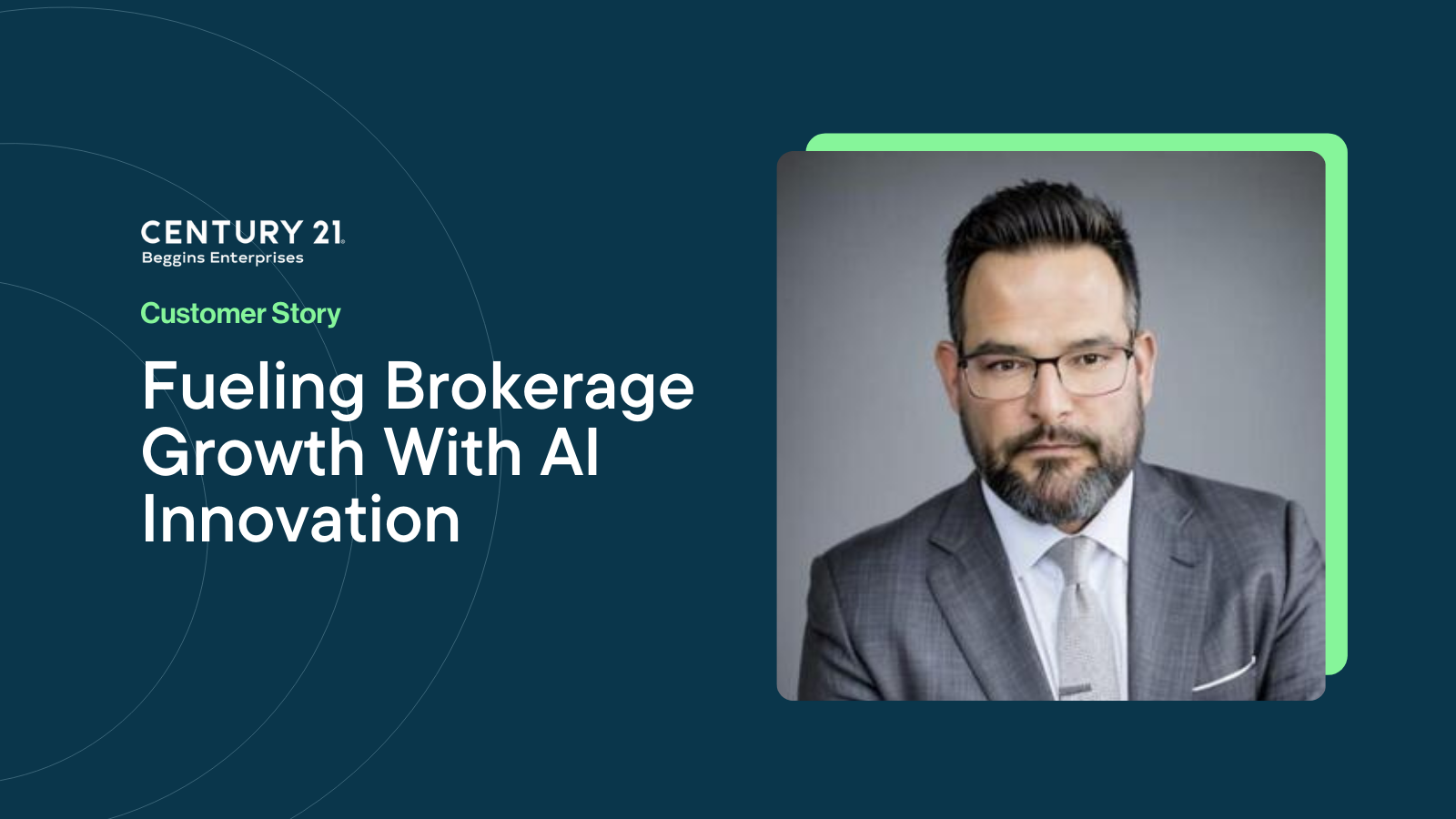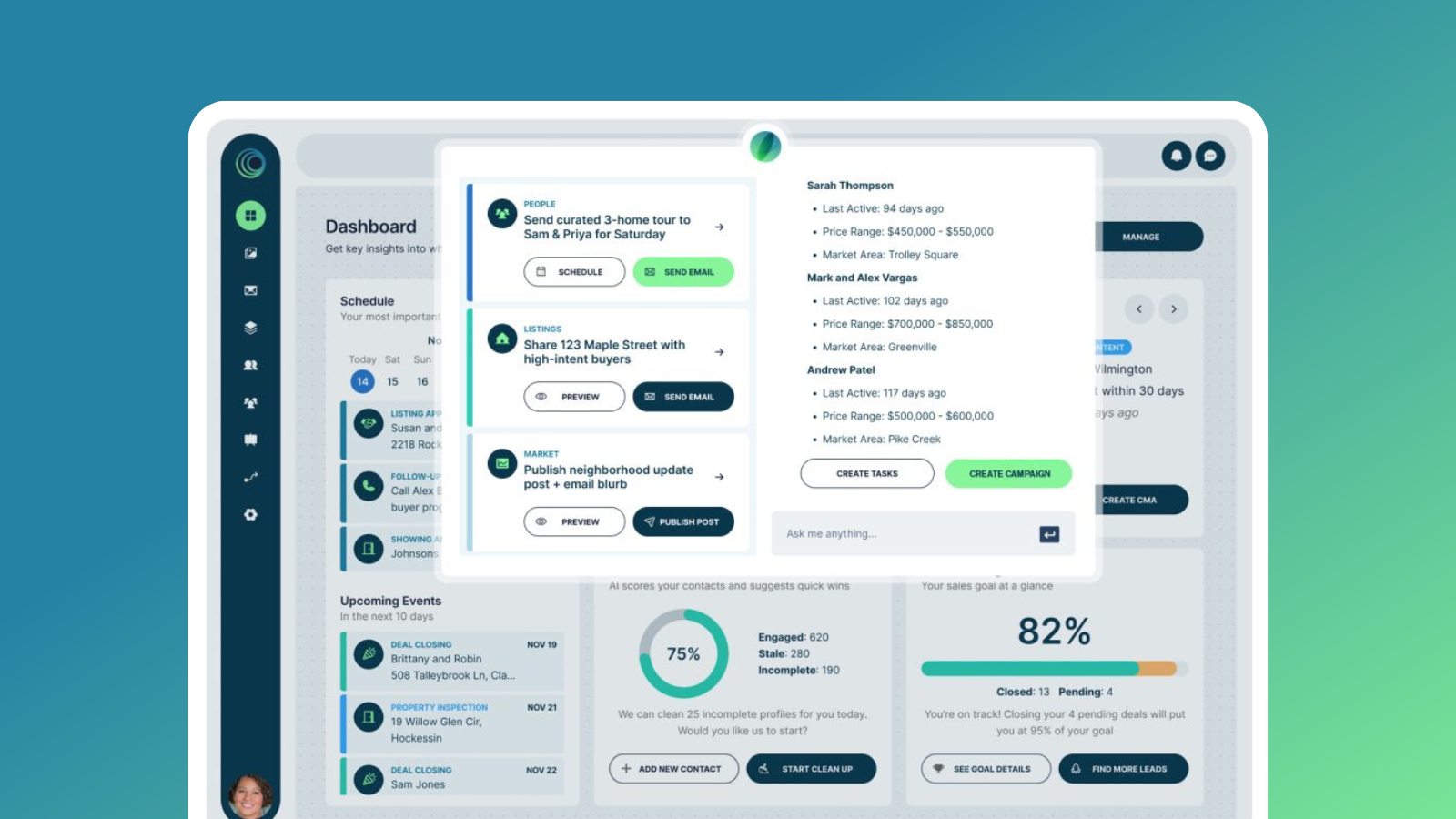As the New Year unfolds, the nation’s top brokerages are ready for a fresh start. The time for hesitation over inventory shortages, interest rates, lawsuits, and elections is over. Significant growth is ripe for the taking by firms who pursue bold plans and use powerful technology in 2025.
Here are a few strategies to consider that aren’t dependent on the state of the market to deliver great results.
1. Grow Your Head Count
“Recruiting solves all problems,” my mentor used to say, and 33 years later, he’s still right. If the total number of transactions in the market is likely to remain flat, then the best avenue for increasing sales units is attracting more salespeople. And with a big portion of the industry on the move (surveys showed barely 61% of agents planned to stay with their current firm in 2024) there’s plenty of opportunity to capture and keep fresh talent looking for growth ideas and proven systems to advance their careers.
A recruiting-driven growth strategy requires important assets to drive results, starting with a compelling value proposition that demonstrates the performance difference between your firm and others. Clearly showing the data, customer feedback, and existing agent productivity metrics proves how your firm’s sales strategy, training, and technology can create above-average value for potential recruits.
Of course, joining a new firm involves risk for any salesperson, even new ones. So, an efficient and comprehensive onboarding strategy can help hesitant recruits seize the opportunity to make a change. Aside from learning company policies and procedures, onboarding into your technology platform needs to work so well, recruits “learn and return” to the market as soon as possible, putting their new capabilities to work without losing momentum during the transition.
Finally, capturing talent requires consistent effort by managers and owners to engage with the talent pool looking for change. This is where communications and presentation systems, powered by a lead-nurturing CRM, direct marketing tools (like email and text) and online presentations helps fill the calendar with appointments. Combined with regular contributions to social media – powered by AI content creation – the potential for recruiting agents (and mergers and acquisitions) becomes a real driver of growth, regardless of market volume throughout the rest of the year.
2. Increasing Per-Person Productivity
“Nothing happens until someone makes a sale,” said Henry Ford, who could have been talking about real estate brokerages, not the auto industry. In 2025, the prime drivers of home sales shifted dramatically over the last decade. As little as three years ago, prices were rising, inventory remained scarce, and interest rates drove consumers into the market. For many agents, service rather than sales activities drove success. Many enjoyed record sales, and yet never conducted an open house, negotiated concessions, staged a property, or counseled a price-reduction. Clearly, times have changed. Whereas homes once sold in as little as an hour, today’s pace is still brisk at around 45 days. Yet that’s still a 1080% increase in time and cost to sell a home – including more marketing, labor, staff support, as well as effort by salespeople. In the year ahead, it will take increased productivity for agents to bridge that gap.
This is where training and technology plays a critical role. Combining sales disciplines with the right CRM platform and direct marketing tools will help agents secure more appointments and close more deals. Delivering listing presentations and market updates to consumers online and sharing insights in social media will expand their influence and generate repeat business and referrals. Agents marketing themselves and properties using online templates, interactive websites and video will be essential – not just to sell a listing, but as listing tools to prove their past performance to prospective sellers.
With new technologies like artificial intelligence, productivity gains in 2025 are poised for big leaps. The right technologies will close leads at higher ratios than past approaches. For example, agents who directly prospect consumers – such as for-sale-by-owners – using a database will have an 88% likelihood of converting them into a listing. Compared to agents running ads or waiting for search engines to deliver leads, (whose conversion rates never exceeded 3-4%), the opportunity to outpace competitors is enormous. And while artificial intelligence will add to agents’ abilities to surface new opportunities, existing marketing automation and online training technology is already pushing gains in listing and closing ratios.
3. The Year of Agent Enablement
Adding new agents and empowering them with great systems is necessary for great growth; but it’s not sufficient to make it happen. That’s where the need to perfect your sales enablement processes becomes a priority. After improving the general onboarding process, delivering ongoing training, coaching and technical support is as important as recharging an electric vehicle each night. Agents will never reach their destination if their skills and knowledge aren’t fully empowered wherever and whenever they need to improve.
For starters, firms must make training as easy as possible, and then, make it even easier. Providing access to content via mobile phone and streaming events is critical because the agent’s workplace is in the public, not the office. Firms must work with partners who are comfortable engaging people using more than simply recordings: Live Zoom sessions are as normal today as attending in person and bringing your laptop to class was three years ago. And expanding options to reach management and technical support via chat tools and automated-problem-solving chatbots can keep salespeople going at times when a phone call just isn’t possible.
Brokers must ensure technical support becomes a trusted partner for their agents, by engaging technology partners with the resources and reliability to quickly resolve challenges. Delivering timely and satisfying help to agents not only impacts the next sale,: it influences another retained agent. Technical support is as much a part of sales enablement as coaching and marketing tools.
Without a doubt, the opportunities to drive growth in 2025 are plentiful. And yet they’re also different than those of the last five years. For over a decade, brokers have been obsessed with finding more inventory and generating more leads. Yet equally viable paths to growth focus on attracting more talent and generating more direct prospecting activity.
There’s a lot of slack in the industry: a typical agent does fewer than 10 sales a year. And the number of firms using effective technologies remains lower than you might expect. According to member surveys by the National Association of REALTORS, 66% of agents generated no business from online leads last year, and 65% of salespeople generated no business from conducting open houses. Online or offline, there are plenty of places where agents would love to be recruited to firms who can change those outcomes.
Growth in 2025 might look like a problem to an inexperienced observer, but to an optimistic broker, it looks like there are multiple ways to capture opportunity by providing real solutions to real salespeople seeking the right strategy to grow.
Hear more from Matthew Ferrara in the on-demand webinar:
“Turning Uncertainty into Opportunity: 3 Keys to Profitable Brokerage Growth Ahead”



